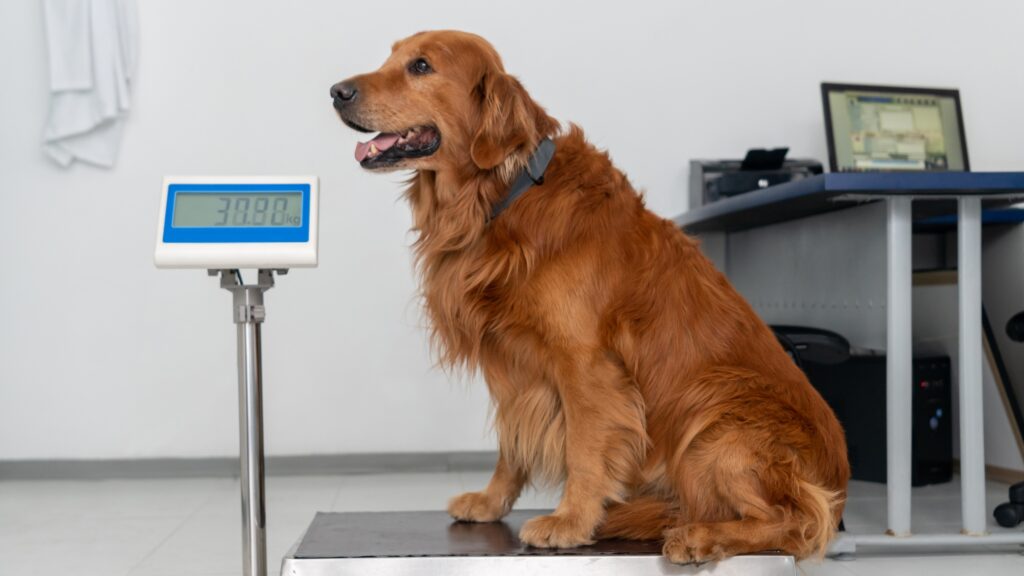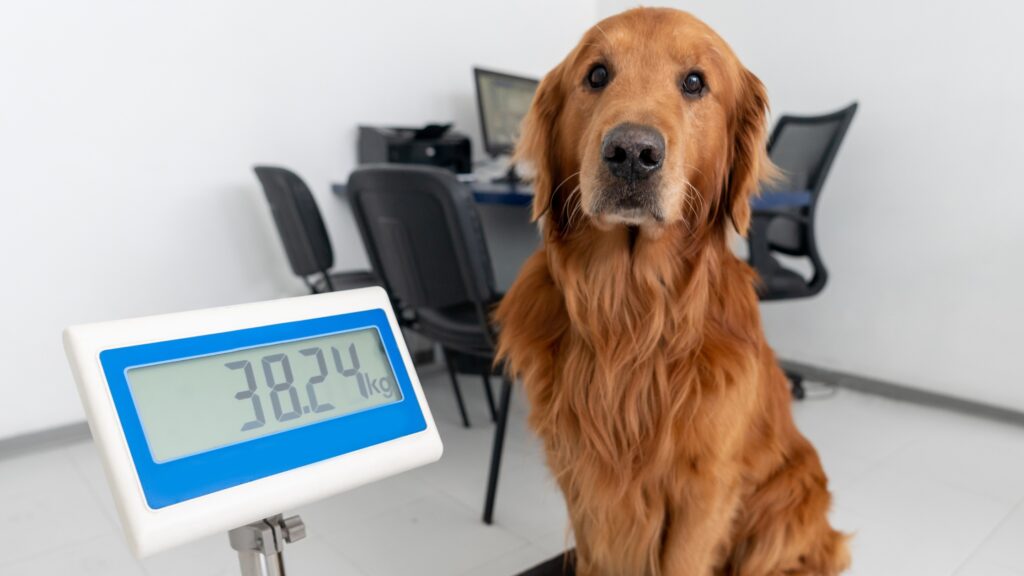Ever wonder, “How can I manage my dog’s weight and keep them at a healthy size?” It’s a common question, and it’s an important one!
Keeping your dog at a healthy weight is crucial not just for their looks, but for their overall well-being. Managing weight properly can impact their energy levels, joint health, and even their lifespan!
Plus, no one wants to think about the health risks that come with weight gain—like diabetes or heart problems.
Determining the Ideal Weight for Your Dog

Before you jump into action, the first thing you need to know is: What’s a healthy weight for your dog?
Since dogs come in all shapes and sizes—from tiny Chihuahuas to giant Great Danes—there’s no one-size-fits-all number. So, how do you figure it out? The best person to ask is your vet.
Your vet can help determine your dog’s ideal weight based on a few factors:
- Breed: Different breeds have different weight ranges.
- Age: Puppies, adult dogs, and senior dogs have different nutritional needs and weight standards.
- Size: Even within breeds, individual dogs can vary in size.
- Body Condition Scoring (BCS): This is a simple visual assessment vets use to check if your dog is too thin, just right, or carrying a bit too much weight.
Once you have a target weight in mind, the next step is making sure your dog stays on track!
Standard Practices for a Healthy Weight

Now that you know what your dog’s ideal weight should be, let’s talk about how to get there—and stay there!
Managing your dog’s weight doesn’t have to be complicated. It’s all about sticking to some simple habits that make a big difference over time.
Monitor Food Portions
One of the easiest ways to accidentally overfeed your dog is by “eyeballing” their food portions. You might think you’re giving them just a cup of kibble, but without measuring, it’s easy to give a little extra here and there.
Over time, those extra calories add up! So, get yourself a measuring cup or invest in a food scale to portion out meals properly.
Choose the Right Food
Not all dog foods are created equal. It’s important to pick a high-quality dog food that’s tailored to your dog’s life stage (puppy, adult, senior) and activity level.
Some dogs, like working breeds, need more calories, while more sedentary dogs need fewer. And if your dog’s already a little on the heavier side, consider switching to a lower-calorie, weight management formula to help shed those extra pounds.
Exercise Regularly
Just like us, dogs need exercise to stay fit and healthy. And it’s not just about weight—exercise keeps their muscles strong, their joints flexible, and their minds stimulated.
Make sure your dog gets daily physical activity, whether it’s a walk, a run, or some good old-fashioned playtime. Even just tossing a ball around the yard or playing tug-of-war can burn calories and help them stay active.
Limit Treats
We all love spoiling our dogs with treats—it’s one of the best ways to show them love! But treats can be sneaky calorie bombs, especially when handed out frequently.
Try to limit treats to training sessions or special moments, and opt for low-calorie, healthier options.
You can even use small pieces of fruits and veggies like carrots or apple slices as a treat alternative.
Regular Check-ups
It’s always good to check in with your vet regularly, especially when you’re focused on weight management.
Vets can help monitor your dog’s progress with weigh-ins, give advice on adjusting food or exercise, and keep an eye out for any health concerns that might affect weight.
Plus, some vet clinics have weight management programs to support your dog’s journey to a healthier size.
Wrapping It Up
Managing your dog’s weight might seem daunting, but by keeping a few simple strategies in place—like portion control, regular exercise, and limiting treats—you can set your furry friend up for a long, healthy life.
And don’t forget the added boost from a daily multivitamin like Pet Honesty’s to support their overall health, including weight management.
Every dog is unique, so don’t hesitate to chat with your vet about what’s best for your pup. With the right plan in place, you’ll both be on the path to a happy, healthy lifestyle!